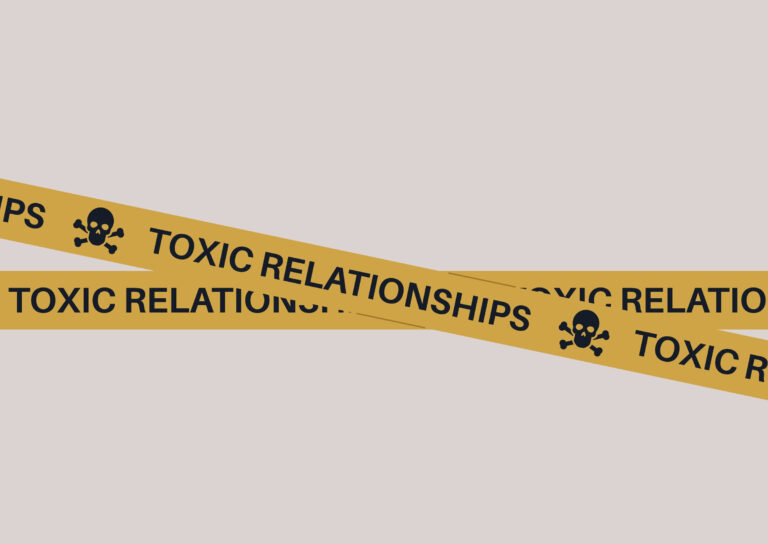Signs you are in a toxic relationship

If you have clicked onto this article, then chances are you already have a few doubts about your relationship or significant other which are starting to snowball.
When we date to find a serious relationship, our intention is usually to find one that is edifying and healthy.
Whilst toxic relationships aren’t something we go consciously looking for, they are something that our subconscious can automatically attract due to our convictions, lack of knowledge or past.
Either way, unhealthy relationships should not be tolerated and it is not your job to try and rescue someone whilst putting up with degrading and unacceptable behaviour.
How do you realize that your relationship is toxic? Relationship educator Brie Schmidt has told us which dating habits seem normal but are actually toxic!
Table of contents [ Show Hide ]
What is a toxic relationship
A toxic relationship can be identified as a connection with someone who does not edify you or your well-being. It involves toxic behaviour from one person or both and can quickly turn into an abusive relationship.
They are often volatile, have abusive tendencies and involve drama, extreme negative behaviour and vicious cycles.
We often think of toxic behavior only existing in romantic relationships. However toxic relationships also exist between friends and family, co-workers and essentially any potential person that you are connected with.
Another key to identify a toxic relationship is its addictive pull. Strangely enough most people who are involved or attracted to toxic relationships often feel like they are trapped or can’t leave.

The rush of the drama is confused with being needed and wanted and victims of toxic relationships tend to keep going back for more in hopes of validation or wanting to rescue the other person.
In extreme cases such as Stockholm Syndrome, some people believe that their perpetrator is their saviour in disguise and identify toxic behaviour as loving behaviour. This is usually due to low self esteem and false convictions about their worth.
The signs that you are in a toxic relationship
Identifying a toxic relationship early on gives you the best chance to be able to set boundaries and get out. More often than not people find themselves trapped in a toxic relationship without even realising it.
And it’s not until it reaches breaking point, or intervention happens that they then realise the reality of this type of relationship.
When we focus on the feelings we have for someone or their potential, rather than the reality and the way they treat you, we can easily have misled ourselves into a false reality of what this type of person or relationship really is.
Here are some clear indications that you are in a toxic relationship:
Volatility
Toxic relationships lack stability due to one person controlling the relationship and the other person reacting. These relationships contain a constant push pull dynamic and often have a lot of drama and extreme behaviour.
Lack of peace or progress
In toxic relationships, there is a lack of peace because of the volatility and constant conflict –both inner and outer. There is also no progress, the relationship usually stagnates or continues to get worse causing vicious cycles.
Controlling behaviour
In most cases of toxic relationships, one person is controlling or gaslighting the other. With either their words or actions, the controller aims to dictate the other person and receive a reaction from them, which in turn gives them a sense of power.
Belittling , name calling, and put downs are all signs of mental, emotional abuse and even verbal abuse.

Gaslighting
This toxic behaviour means that one person is trying to set the other person up to believe that they are the perpetrator. They aim to attack their identity and character. In turn the real culprit comes off as the victim and then uses this ‘role’ they have created for themselves to manipulate the other person.
Abuse of any kind
Any type of abusive behaviour is instantly toxic, regardless of the circumstance. Whether this be emotional blackmailing, verbal insults, physical or sexual assault or mental degradation, none of it is justified or acceptable.
Lack of boundaries
Lack of boundaries usually is why toxic relationships begin and in most cases, it involves someone who is a Controller and a Compliant. A Compliant person often struggles to say no and has the need to please everyone, hence why a Controller is attracted to them.
Constant fear
A healthy relationship is one that you feel safe and free in. A toxic relationship can therefore be identified as one that holds and nurtures a lot of fear and anxiety. Constantly walking on eggshells and feeling that the little things you can do can set them off is a sign you are with a toxic partner.
Constant justification
Toxic relationships don’t always involve abuse or extreme behaviour.
They can also be identified when one person constantly justifies the state of their negative relationship or the other person’s poor behaviour. This person tries to convince others and themselves that things are ok and will get better because of how they feel about the other person.
The use the excuse of ” just going through a rough patch” as a means to cover bad behaviour from themselves or their significant other.
Narcissism
When a relationship involves narcissism or narcissistic behaviour, it can instantly be identified as toxic.
Narcissistic behaviour is when one person aims to control the other through manipulation, deceit, gas lighting and their own ego. The victim constantly feels like they have to earn the other person’s love or that everything they are doing is never enough.
The victim’s self worth then becomes dependent on the validation of the narcissist.
Psychology behind a toxic relationship
We aren’t born with toxic behaviour or the desire to want it, so why do we find ourselves in cycles of toxic relationships?
The answer is simple – we learn this negative behaviour through our upbringing. What we are exposed to as a child and young adult influences our neurological pathways that then create our habits and convictions – which in turn produce our actions and choices.
Victims of abusive homes often find themselves either repeating the abuse in their own relationships as an adult, or attracting it in their connections.
Our brain is always trying to take the path of least resistance or gravitate to what it is familiar with, even if it’s not good for us. If someone has a low level of self-awareness coupled with lack of education and lack of accountability then they are likely to find themselves producing toxic behaviour or being in a toxic relationship.

How to leave a toxic relationship
Leaving a toxic relationship is easier said than done. Once you have identified that you are in one, the only goal should be to leave it, not try to fix it or the toxic person.
It’s time to switch on emotional intelligence and maturity so that you can avoid further pain and abuse. Knowing the red flags and what toxicity looks like is the first step.
The ease or difficulty of leaving a toxic relationship depends on a few factors:
- The Type of Relationship you have – whether you are married, have children, are legally obliged to each other or related. There needs to be certain stages of breaking away from someone due to legal proceedings.
- Circumstances – living together or relying on that person financially. This includes family or a boss who has become toxic.
- Your Emotional Capacity – how you are able to handle change and the discipline you have to follow through with setting boundaries. This also involves your convictions about the person, relationship and your worth.
- The Timing – This can affect your ability to end a relationship if you are obligated by an event or relationship that is dictated by time. However, in most circumstances one can still set strong boundaries with a toxic person until they are able to leave completely at a time that permits them to.
- Level of Support and Accountability – Victims of toxic relationships who have some sort of support network or accountability often have a higher chance of being able to break free and move forward. This could be family, friends or a professional counsellor who are able to intervene and hold you accountable.
Help resources and how to reach out / what to know
In almost every case the best thing to do is to reach out and get help and know how to set yourself up to end a toxic relationship successfully.
The first thing to do is to be able to set boundaries with the other person. This should be done both verbally and physically. Knowing how to handle conflict and arguments in a relationship means you are able to stay in control and communicate what your boundaries are.
Staying level headed and calm during conflict, or choosing to remove yourself from it entirely means you set yourself up to be able to respond rationally rather than emotionally.
Remember a key reaction that toxic people want is a high emotional and extreme response from their victims.
If you are someone who struggles with being able to follow through with boundaries, then reach out and seek professional help. Your local councillor or centre for abused victims could be the best place to start depending on the severity of your relationship.
Reading books or watching content on YouTube can help motivate and educate you on how to end a toxic relationship, but don’t rely on this alone.
Having a strategy and someone to keep you accountable is the best solution to being able to end a toxic relationship. Because more often than not it becomes too easy to keep giving someone a second chance or believing them that things will change.
Lastly, another key here is to be consistent with what needs to be done during this process, as opposed to focusing on how you feel. Leavening a toxic relationship doesn’t mean that you stop feeling or hoping for that person, however those feelings aren’t an indication that you should stay and keep trying.
- #1 trusted dating app in the US
- For serious, long-term relationships
- Free registration
- Good search function
- Very fast contact
- Registration free of charge
- Fast answers
- Large database of verified & attractive Asian and European singles
- Efficient communication and instant messaging
- Top-level safety and professional support
- Receive curated matches in just 15 minutes
- Send and receive pictures in private chats
- A high-security chat with two-factor authentication
- 24 hrs customer service
- One on one Romance Consultations.
- 100% real users.
- Best for: Finding authentic mature matches
- Free membership: Free registration, limited
- Users: 5 million
- Special features for frequent travellers
- Female members use the service for free
- No monthly subscription
- Meet real asian, european, and latino singles
- Real-time communication with efficient tools
- Professional dating services







